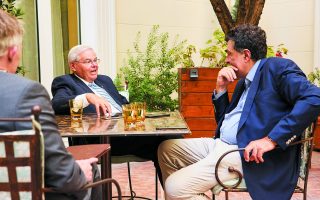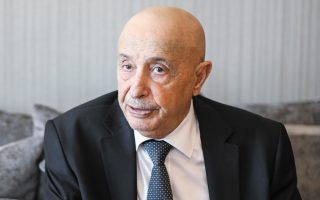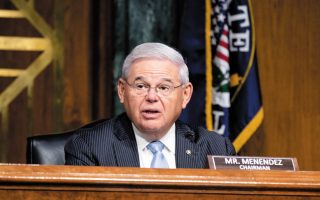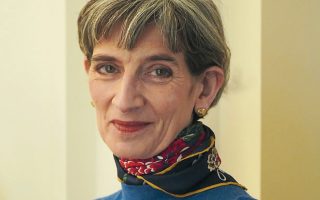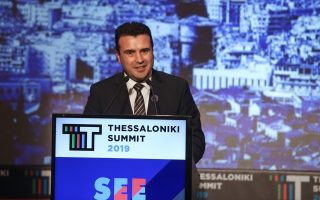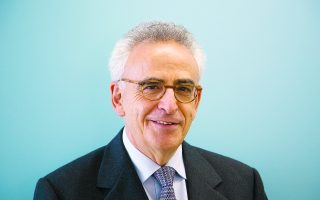Israel in the role of peacemaker in the Middle East
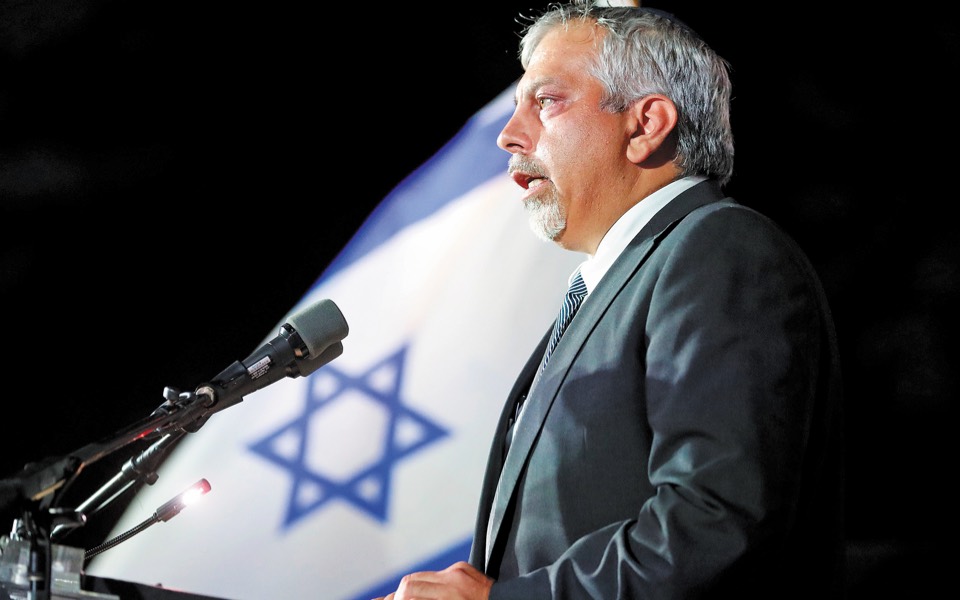
In an exclusive interview with Kathimerini to mark the one-year anniversary of his country’s first agreements with the United Arab Emirates, Bahrain and Morocco, the spokesman of the Israeli Foreign Ministry, Lior Haiat, describes the Abraham Accords as diplomatic achievements that increase stability in the wider region of the Middle East and Eastern Mediterranean.
Haiat considers the agreements a model for the normalization of relations with other countries, while noting that, in combination with the trilateral cooperation between Israel, Greece and Cyprus, the Abraham Accords open trade channels between Europe and Asia.
A year after the Abraham Accords, can you describe the first tangible results of this process, this rapprochement between Israel, the UAE, Bahrain and Morocco?
I think there are a lot of tangible results. First of all, we’re living in a new reality in the Middle East. Definitely in a reality with more stability and prosperity and that’s a very important issue in a region known for its instability. We have signed more than 40 agreements with the UAE, Bahrain and Morocco. These agreements are the infrastructure of peaceful relations with these countries. And the goal we see in Israel in these peace and normalization agreements is that peace will not be just between the leaderships, not just between politicians, but that each and every citizen in Israel, in the UAE, in Bahrain, in Morocco will benefit, and that it will affect the lives of all in a positive way. One of the effects we have seen that is very tangible is that in the last year, over 200,000 Israelis visited the UAE, in a year dominated by the Covid crisis. Just imagine how many tourists there will be from the UAE to Israel and Israel to the UAE after the Covid crisis.
Has Israeli society embraced these agreements? Does it really understand the necessity for them?
I think Israeli society has embraced the agreements. Support for the peace agreements is basically unanimous. We see the benefits. It is part of our long-term goals to reach peace with all our neighbors. Definitely, each country has its own rhythm, but we have been in this effort for a peace process since the 1970s. We signed a peace agreement with Egypt in 1979, with Jordan a few years later. It took us over two decades to sign the four agreements that were signed last year. All this process is the future of Israel. We are looking to reach agreements with all our neighbors, to be part of the Middle East to help its prosperity and stability. I think we are on the right path.
Do you think that perhaps we will have some results in the discussions for the extension of the Abraham Accords in the coming months? Because I know there have been some talks with Sudan for example, but you are not there yet…
I think we will succeed. I’m not sure I can say it will be in the next month, but it will definitely be in the near future. Hopefully, it will be with more than one country. There are a few countries looking on their way to join this circle of peace. I do not want to mention any of them now because I do not think it’s beneficial for the process. But, definitely, what we have done in the last year is a model for other countries. Other leaders are looking at Israel’s relations with the UAE, Bahrain and Morocco. They understand the benefits of having ties and peace with Israel for their own countries and their own citizens. And this is the most important thing, because peace is not something that was given as a gift to Israel. Peace is a win-win process or a “win-win-win” situation, because other countries that are not part of the bilateral relations will benefit from the peace, stability and prosperity that it will bring to the region. Leaders understand that to enjoy the fruits of peace, they will have to make this step towards the circle of peace. We will definitely be here to extend our hand to each and every leader that will chose peace over conflict and war.
Is Israel becoming a diplomatic hub in the region? There are the Abraham Accords, and the trilaterals with Greece and Cyprus. Can these diplomatic achievements be combined in some way to help integrate the region, from North Africa to the East Mediterranean, the Middle East and the broader region in general?
There is no doubt that this is part of our long-term goals. One of our Middle East economics experts compared the cooperation between Israel and the UAE with the East and West Coast of the United States in terms of the economy. Israel is the West Coast of the Middle East and will open the door to European markets. And the trilateral we have with Cyprus and Greece certainly tends in this direction. The UAE is the East Coast of the Middle East and will open the markets in Asia. Not only for Israel, but also for Israel’s partners in Europe. It will be easier to cooperate with Asia having this connection between Israel and the UAE. And there will be different layers, different circles that will benefit from the agreements we signed in the last year. And hopefully it will bring stability and prosperity from North Africa to the Middle East. This is our goal. It should be the goal of every leader in the region because it will make the lives of the future generation easier and more prosperous.
Do you think that the accords can be a model for the normalization of relations with other, non-Arab countries in the region, such as Turkey?
The accords are a model without a doubt. The way we achieve them, the way that we are building the relations. Other countries are looking at them not only for relations with Israel. It is a change of the paradigm in the region and will affect other processes as well. Without mentioning other countries, I think that stability in the region will affect not only the Middle East, but the entire region, which needs stability. The region is known for its instability, for its conflicts. Most of the news we have had about the Middle East has been about conflicts. The last year has been amazing for me both as the Foreign Ministry spokesperson and as a diplomat because we talked about peace. We talked about achieving peace with our neighbors. I’m sure peace has not been a major topic on the news for years. So this is a generally good sign and definitely for the future of the Middle East.
